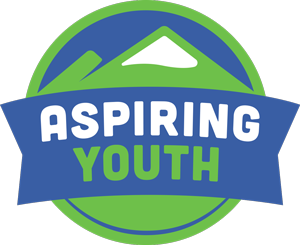What is Dungeons & Dragons? Why does Aspiring Youth use it in one of our social skills groups? And why is it one of our most popular groups?
While some of our students’ parents have played it themselves, many don’t really know what it’s all about. Read on if you’re either unfamiliar with the game or how we use it.
 The game
The game
Dungeons & Dragons (or D&D) is the best-known table top role playing game in the world. It has been around since the early 1970s, though it has changed and evolved over time. The basic concept is fairly simple. Each player has information about a customized character, and the leader (or Dungeon Master) is essentially a combination of narrator and referee. She or he tells an imaginary story while the players decide how their characters interact within that story – and act it out.
The game evolves each week and takes on the personality of the group as players progress and encounter consequences. Some games are serious or cartoonish. Some are filled with diplomacy and intrigue, or with epic battles that the characters race to stop. All require collaboration and symbiosis between the players and the leader.
Why use it for social skills?
Role playing has been used by mental health clinicians for decades to help people rehearse interpersonal interactions and coping strategies. When moderated by professionals, D&D can serve the same function.
Aspiring Youth social skills groups (the first in Washington to use D&D in an organized way) accomplishes these same goals:
-
Players think about how someone else would act through coaching and creating a (generally prosocial) character whose motivations and personality are different.
-
They have to mimic the behavior and words of that type of person.

-
The game provides a safe, flexible framework in which a person can practice those social skills.
-
What’s more, the players are rewarded with in-game prizes for successfully doing so.
In addition to that, we often co-facilitate the game to track player’s behaviors. With a white board, we visibly tally various behaviors such as raising one’s hand and waiting to speak versus disruptively talking out of turn. We also track whether a player is ready on his or her turn or there is a delay in the game due to the player being distracted. The target behaviors are collectively rewarded with in-game points and the opposite behaviors are penalized. The peer pressure to exhibit target behaviors for rewards (and avoiding penalties) leads to significant improvement.
How parents can help
How can you support your student’s efforts? Here are five tips to practice in your home:
-
Basics: Learn about his or her character and the motivations that drive the character. Ask about personality, class/job, race, physical skills – learn all you can.
-
 Motivations: While you may not understand at first (What is a lawful good, dwarf knight who wants to bring justice to the world?), all of these details such as morality and background impact how a character would act in a given situation. Coach your student on how that type of person might act. That’s what we want the players to think about.
Motivations: While you may not understand at first (What is a lawful good, dwarf knight who wants to bring justice to the world?), all of these details such as morality and background impact how a character would act in a given situation. Coach your student on how that type of person might act. That’s what we want the players to think about.
-
Reviewing the rules: If your student doesn’t have answers about his or her character, it’s probably time to read the rule book a little better, which you can do together.
-
What’s new: Ask about new developments each week. Players love to talk about their experiences. Maybe the character succeeded at a seemingly impossible feat and saved the day! Or perhaps, the character is trapped and in need of rescuing by the party.
-
Check in with us! Stop inside when picking up your student and chat with us, the facilitators. While teens might groan a bit, this is a great way to catch up on behavior goals among parents, students and facilitators.
Hopefully, this gives you some tips and a better idea of how Aspiring Youth brings growth to students’ social skills in a dynamic, captivating and unique way. If you have any questions, please visit our website or call 206.517.0241.
Our Spring 2016 Dungeons & Dragons social skills group meets Tuesdays in Seattle and Fridays in Bellevue.
If you liked this article, please check out our how board games can also become a valuable way to teach or reinforce skills.
Dr. Boccamazzo is a doctor of clinical psychology and social skills coach with Aspiring Youth. In addition, he is the clinical director of TakeThis.org, a national nonprofit focused on mental health and the gamer community, runs a private psychology practice in Bellevue offering individual therapy and psychological assessment to adolescents and adults, and provides parent and clinician trainings on technology in psychology. Much of his work focuses on high functioning autism, problematic technology usage, social anxiety, trauma and games. In his spare time, he enjoys acting, cooking, board games and video games.



Leave A Comment
You must be logged in to post a comment.